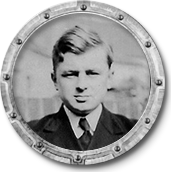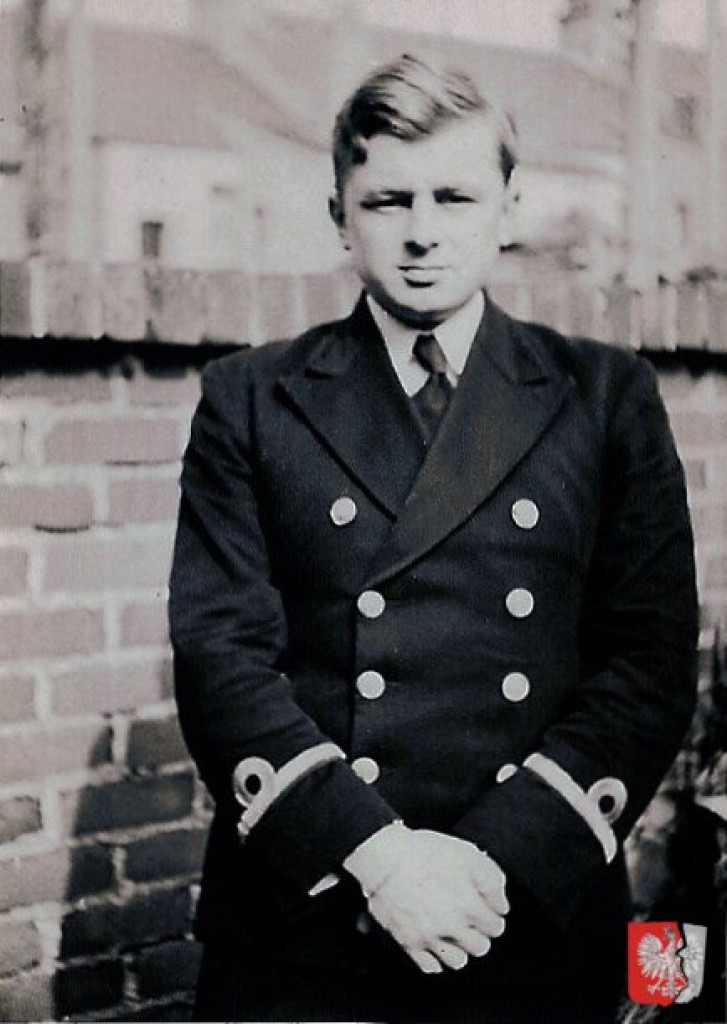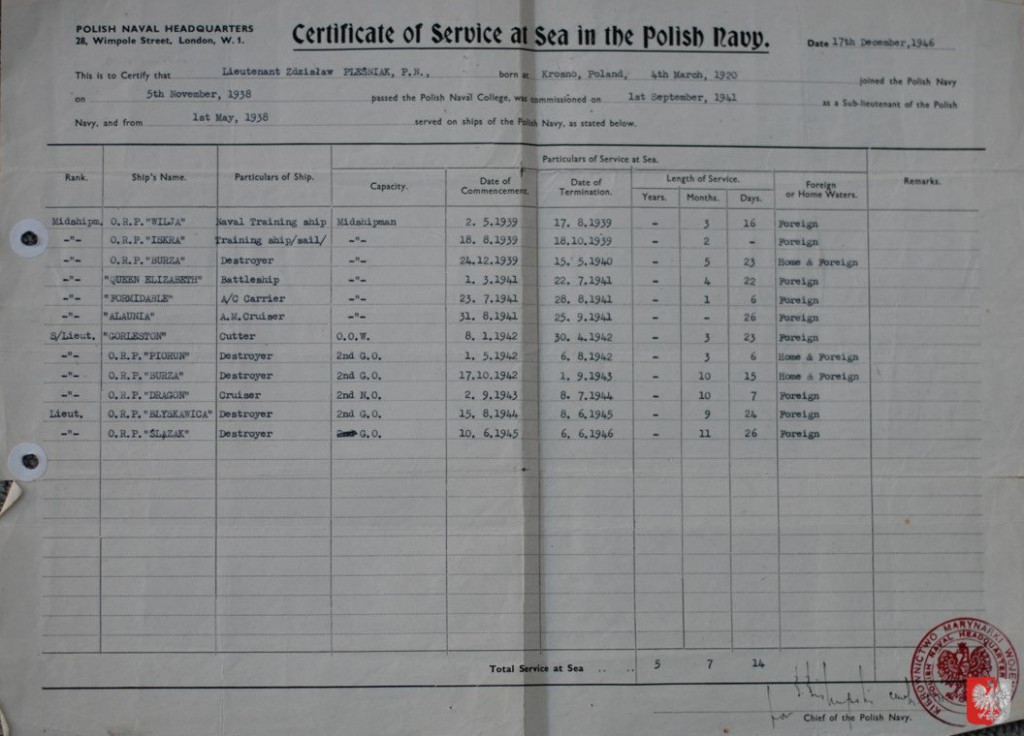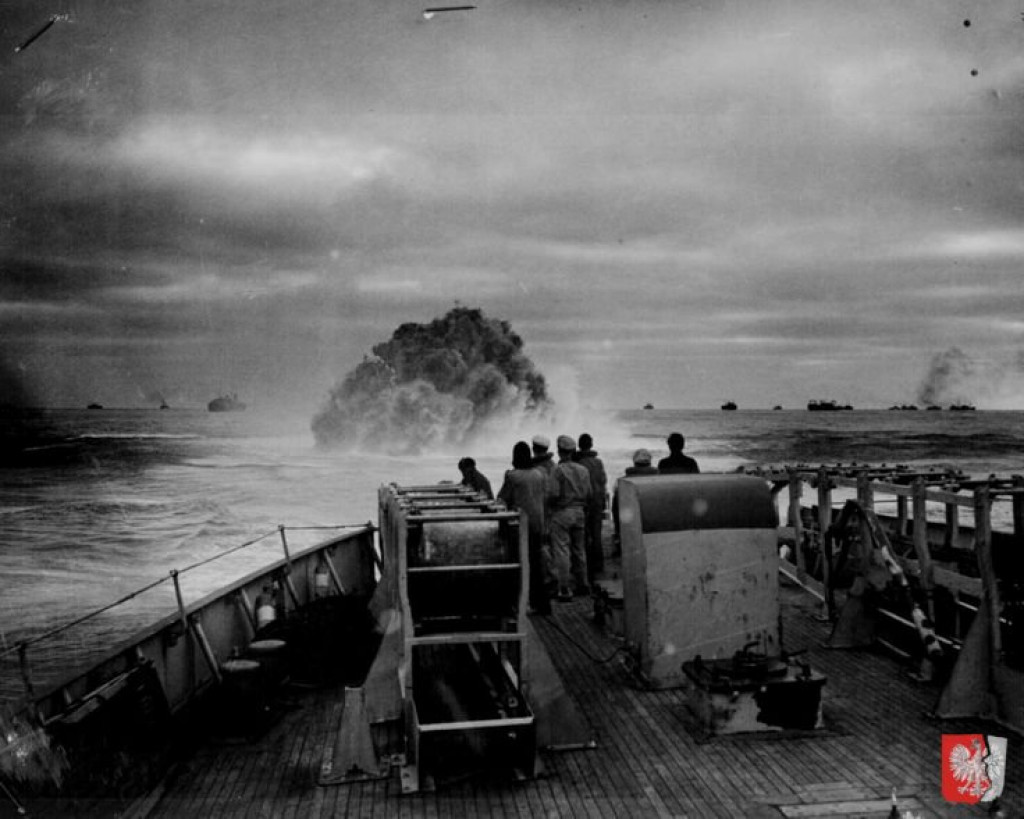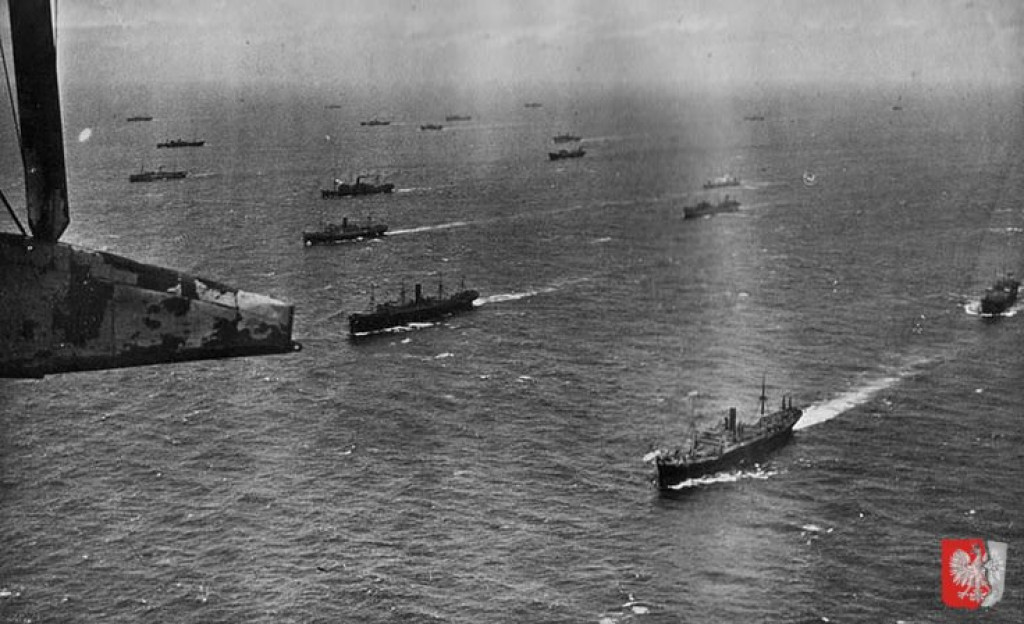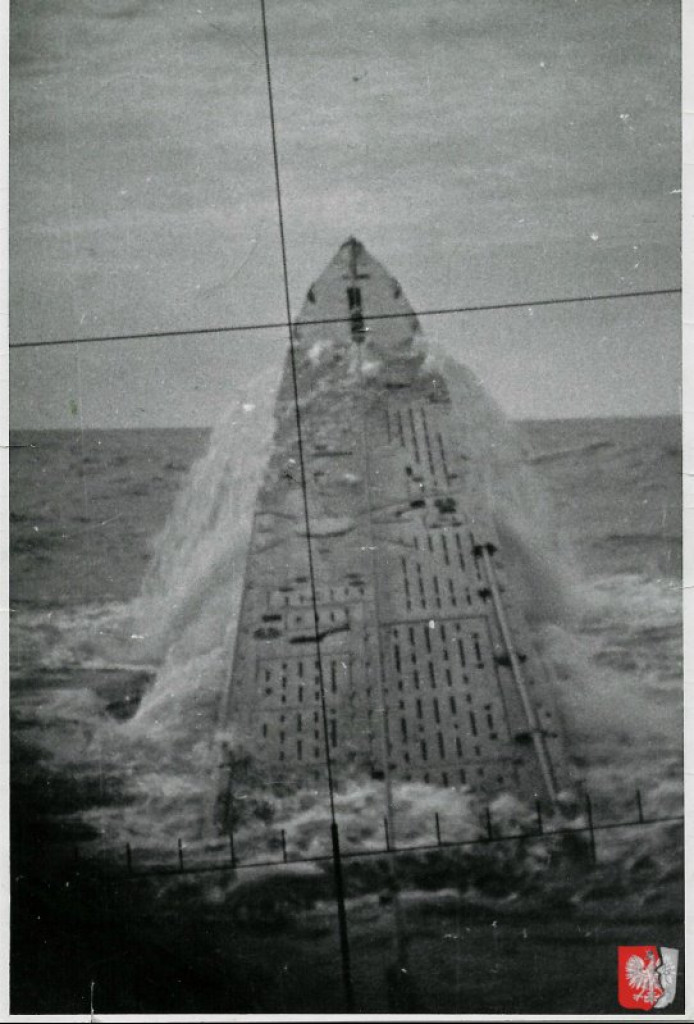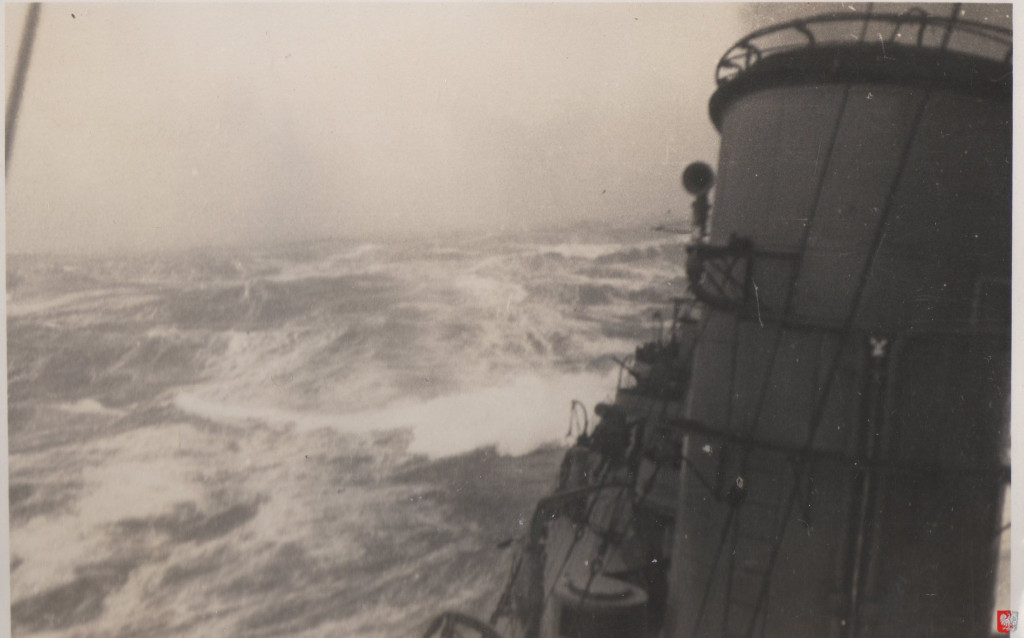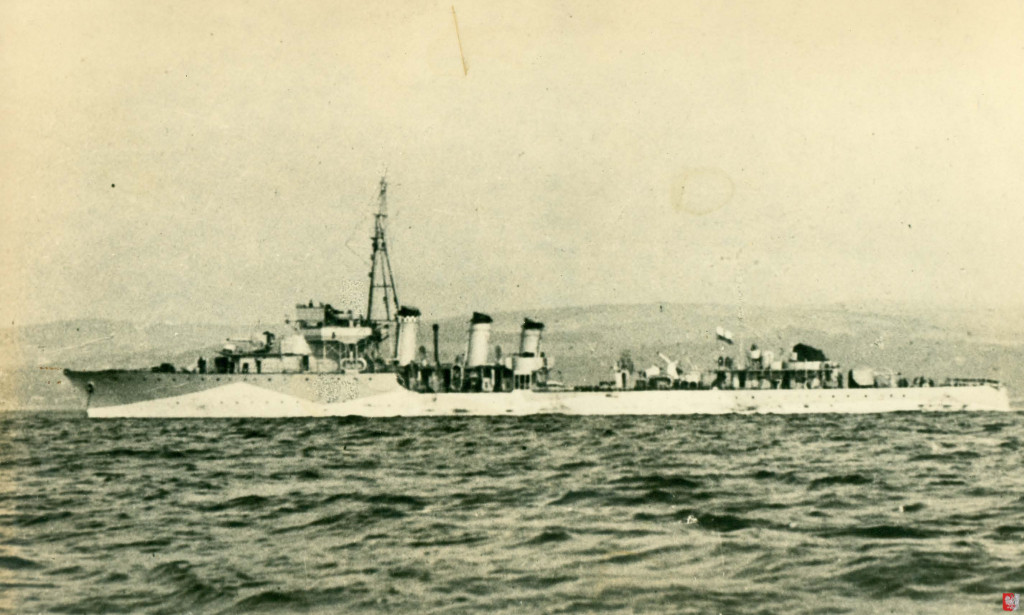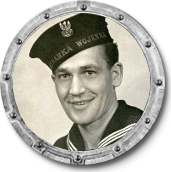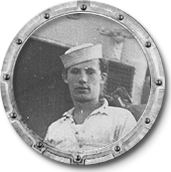
Polish Naval Memories of WWII
The following account fro Burza’s 2nd Gunnery Officer Sub Lt. Zdzisław Pleśniak relates to the attack of U606:
‘It was early spring of 1943. I had been serving on the destroyer Burza all that winter in convoy duties in the North Atlantic. It was a memorable winter in many respects, the German U-Boats were really gaining the upper hand and the only peace we had was when the weather was so rough that the convoy was almost at a standstill and the poor escort vessels tried hard, sometimes succeeding, to ship water into their funnels.
In that weather and with a large percentage of ships of the convoy being tankers the night attacks and torpedoing were a terrifying spectacle. The torpedoed tanker looked an enormous red torch and in its light the other ships seemed to be so many sitting ducks; the escorts did their best but our results were never spectacular and in the darkness often uncertain. We came to dislike the Germans, hate is probably a more correct word, and often discussed what we would do with any of the U-boat men if we ever had a chance to take any survivors from a sinking U-boat.
In that state of mind we left on yet another convoy. The weather was reasonable, the usual rain, cold and high seas, but not a gale, and so we expected some uneasy nights and the tension was mounting as the first few days passed. We were still unspotted and the reports from the Admiralty indicated some U-boats were in our path but nothing out of the ordinary. The convoy ahead of us by about three days was, however, being very badly attacked and ships were being sunk during the night as well as by day. The escorts, according to signals decoded in our ship, were very hard pressed and, it seemed, quite unable to tackle the situation; they were out-numbered and out-manoeuvred.
An Admiralty signal ordered our destroyer to proceed at a maximum speed and join the convoy under attack and so reinforce the hard-pressed escort. That was a very unusual order and we all felt that it was caused by rather exceptional circumstances. The next two days were rather quiet but the tension mounted as our position showed that we were nearing the area of battle.
On the morning of the third day we heard distant shelling and later in the morning found an abandoned and burning ship. We also sighted two or three submarines on the surface nearby. We altered course but the submarines dived and we were unable to get any contact with our Asdic. The ship was damaged but it seemed like it would take a long time to sink and as our main duty lay with the convoy ahead and the proximity of the sighted submarines suggested that they might try to obtain some stores and even code books we decided to torpedo the ship. A torpedo was fired, it hit near the stern and she went down, lifting her bows well above the surface in her last moment.
As the day passed we strained our eyes and all our Radar equipment in the hope of picking up our convoy. Just as the night was falling we saw a flash and then heard the explosion. Our convoy was ahead and under attack already. We went into ‘Action Stations’: reported our arrival to the Senior Officer and almost immediately got a contact on our Asdic. We attacked and the whole ship and every member became a part of a very exact machine designed mainly for destruction. Our hearts and minds were in it. We were stung to a terrific pitch, the hate, the need for vengeance, sense of duty and maybe to a degree, the terror of the night and enemy torpedoes made our attack very exact and deliberate.
We did not wait for the result but moved on to the convoy. The attack was over, however, and things seemed to be calming down. Our attack had been successful and the badly damaged submarine (U-606) came to the surface astern of us only to be sighted almost at once by another escort that immediately attacked and tried to ram the damaged U-boat. The result was rather unfortunate. As the escort struck the U-boat the impact forced the U-boat to turn and with one of her hydroplanes pierced the side of the escort. The engine room was flooded and both ships now wallowed in the long Atlantic waves.
The damaged escort reported the situation and we were ordered to investigate and if necessary remain ready to give assistance. When we arrived in the area we found that the escort vessel could not move but apart from that it was in no immediate danger. The U-boat, however was slowly sinking and when we passed near we heard the cries for help. The cries were human; they came from frightened men – could these be the men that we so hated? They needed help and at this moment somehow quite naturally we did our best to give them help. We approached as near as possible to the stricken boat, and stopping our engines, a very risky move at night in the area where other submarines might be patrolling, told the men through a megaphone to swim, one at a time, to our side. Some of them did; we picked up those that reached our side and took them below. Some probably did not reach us but in the darkness it was impossible to see. About five refused to swim but continued to call for help.
Here our true humanity showed itself, no matter what we said before and intended to do to everyone now seemed to be eager to help a fellow seaman. A life-boat was manned and lowered at the risk of seven of our men’s lives. In that weather it was very easy for the boat to capsize, and went alongside the U-boat to take off the remaining crew.
When they were all safely on board we took them below, found them dry clothing, food, and a place to sleep. I looked at the men as they got into the lighted compartment. They were wet, covered with oil and badly frightened, and even when I reminded myself that these people were the hateful Germans from the U-boat that probably sunk some of the ships under our protection, even then I could only feel pity, the hatred was gone. We were fighting a hard war and in weapons and methods did our best to beat the enemy, to inflict as much damage as we could but when we came face to face with the men that were beaten, we could strike no more”.
Source: ‘Poles Apart: Polish Naval Memories of WWII’ by Martin Hazell
